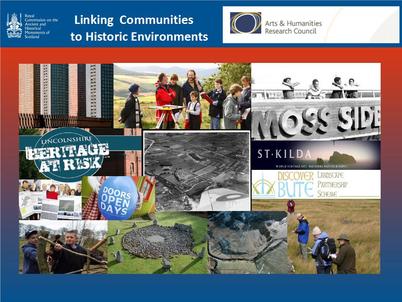|
I have been based in Archaeology at the University of Manchester since 1997. My research has crosscut disciplinary and period boundaries, drawing on archaeology, social anthropology, history, and cultural geography, whilst ranging from the Neolithic to the present-day. The main enduring theme is the relationship between material culture, time, and various forms of identity (community, ethnic, national and diasporic identities). My recent projects have focused on: heritage, modernity and the nation-state; the production of social memory; the experience of authenticity; and the theory and practice of conservation. A new research project, jointly led with Melanie Giles, focuses on the urban public park as an arena in which class, ethnicity, taste, citizenship, health, leisure, memory and place have been produced and negotiated in the past and present. The workshop is an exciting opportunity to explore approaches to the interconnections between time and community. I am interested in how communities are constituted in time and space through material culture and practice. I hope to offer insights into the ways in which community connectivities and time intersect in the form of memory-work. My presentation will focus on how historic objects, monuments and places facilitate forms of community connectivity across time and space, producing a tangible sense of immediate connection to the past and allowing people to negotiate networks of belonging. This will complement the presentation by Melanie Giles on temporalities of practice and the production of community connectivity, which is another important strand in our joint project. Slides from Sian's Lightning Talk I approach the theorizing of ‘temporality’ and ‘community participation’ both from practice and for practice. Specifically my background is in coordinating community participation/ ‘co-production’ projects in the museum and heritage sector and, more recently, merging these techniques with those associated with participatory action research and inclusive research.
A dominant political impulse in theorizing museums and heritage community engagement has been critical and has tended to draw on hegemony as a key theoretical political framework (e.g. Smith 2004; 2006; Smith and Waterton 2010; Lynch and Alberti 2010). In the light of existing work in museums and heritage studies and on participative and inclusive research, I’m currently interested in developing a temporalisation of community participation which might neither under- nor over-burden collaborative practice. In approaching this I am interested in how there might be productive ‘partial connections’ (Strathern 1999) drawn between the multiple temporalities of history as ‘conditions of possibility’ and the phenomenology or non-representational (Thrift 2007) nature of ‘the encounter’. To put it another way, in the context of ‘community participation’ how does time relate to ‘scale’? I am an archaeologist employed by the Royal Commission on the Ancient and Historical Monuments of Scotland. We are a non- departmental government body in Scotland and we help to survey, record, interpret and present the historic environment of Scotland and an AHRC IRO. I studied Geography and Archaeology at Manchester University and then Archaeology at the University of Edinburgh. I am currently undertaking a research review as part of the AHRC Connected Communities programme, entitled ‘Linking Communities to Historic Environments', which looks at how organisations like ourselves and others engages with communities through the historic environment. My approach to the topic of the workshop is simple; if it wasn’t for time I would not be here. Time is what my job is about, it forms the core of my research and is measured in archaeological time, through people’s actions and remains. Alex's Lightning Talk |
Tags
All
|
- Home
- About
- Resources
-
Events
- Timely methods for novel times
- The Material Life of Time
- The Material Life of Time Pilot
- The Social Life of Time >
- Temporal Design >
- Immortality and Infinitude >
- Power, Time and Agency >
- Methods Festival >
- Time in the Archives
- Hope and Community Futures
- Temporal Conflicts >
- Community Connectivities >
- Contact

